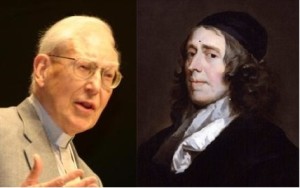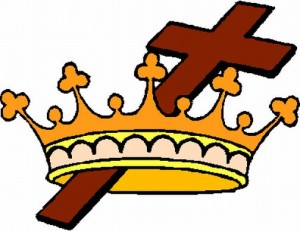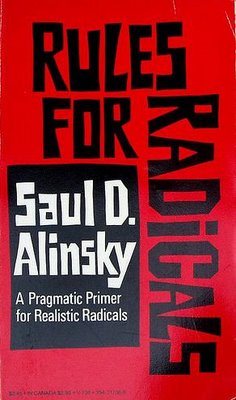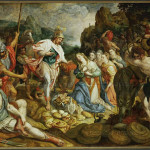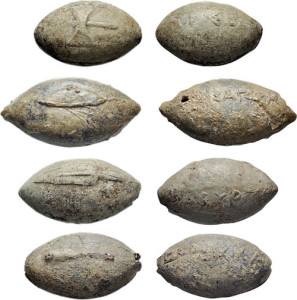 ONE
ONE
Jayn was awakened by the slop bucket being dumped from the window of the room above hers. The sound was not enough to fully rouse her, but the patron in the penthouse had been taken ill the night before and his chamber pot was extremely full. Some of the night’s results splashed on the her window sill and the gentle breeze wafting through the open curtains soon began to carry with it an odor that would not let her drowse. Most mornings the stifling air of Shard would have brought in a stench from the whole city all night, and Jayn, once successfully asleep, would not have noticed any additional aroma. But on this morning the wind had turned from the West, from the plateau country, from home, blowing down on the city.
So the stink was undeniable.
As her nostril’s twitched in her sleep, her eyelids did as well—rapid eye movement as her dreams shifted and she re-lived the Handed Grizz collapsing upon her as it died, suddenly leaking foulness. She was gasping for air and, as her father weakly tried to pull her out from under the corpse, every breath was an agony to her ribs.
Then she woke panting, fingers twitching for a knife that wasn’t there anymore. She whipped her head back and forth trying to understand why she could still smell the Grizzly even though she was in a small room lit by the morning sun coming through the one window, not in the Dagnex wilderness under a winter moon.
But that was two years ago. It was just a dream. The odor became less intense as the breeze died down.
She remembered where she was and got out of bed. Changing into work clothes meant allowing her night wrap to fall to the floor and then kicking it onto the bed. Then she grabbed the green linen long dress and pulled it over her head. It was a pretty color but was otherwise almost as simple as something Jayn could have made from a bag by cutting arm and head holes. Jayn had actually made such a garment for herself more than once. But this one was bought in the beggar’s district with slightly better fabric and slightly greater skill. Jayn had paid twice what it was worth because she felt sorry for the one-handed seamstress. It was only later, telling Pa-pah about it, that she learned one of the girl’s parents, or perhaps some other self-appointed famlord, had probably disfigured her hand to produce precisely that response in a soft-hearted customer.
This had made Jayn feel horrible and want to burn the dress, or do something even more hasty involving tracking the girl’s mutilator to introduce him (or her) to the Lord’s law of retribution. But her father’s wisdom had prevailed.
The remembrance made her glance at his sleep mat (he had insisted that Jayn use the one real bed in the room.) It had been rolled up and stood on an end in the corner by the door. Otherwise Jayn would be stepping on it as she stood in the room. “Where are you, Pa-pah?” She wondered. It was not surprising, if he awoke before she did, that he would leave the room and get his mat out of the way to give her some limb space for changing.
As Jayn pushed her feet into her boots, pulling them out to get her ankles past the hidden sheaths, the breeze revived and shoved thoughts about her father out of her mind. “That smell! Where?” Finally she glanced at window and saw the dark stain on the sill and the brown spots on the light curtains. She stepped toward it, not able to believe that a stranger’s excrement was painting part of her room.
And then she saw her father, walking along the cobblestone street with a package of brown paper in each hand. His green cape with the horrible brown cloth repair was unmistakable at any distance. She noted to herself that they both needed to learn to dress better if they were really going to enjoy their newly won wealth. Even staying in one room seemed silly now that their payday had arrived. Frugal habits had a way of clutching to you.
As Pa-pah walked past the space separating two greenish clay brick buildings, the sun hit his hair and lit it up like a ruby. Jayn briefly considered calling to him to grab a bucket of water on his way up. But then she thought better of it. He was bringing breakfast. She should go down and get the water. Her sister Rachel would tell her that was the right thing to do. Of course, Rachel was always insisting on that kind of work. No matter how busy she had been during the day, when she would see Pa-pah and Jayn arrive back from the hunt. She would wordlessly drop what she was doing and grab the bridles of the steedsaurs and lead them to the trough. Once the pump had been broken and Jayn witnessed Rachel hand carrying bucket after bucket of water to feed their steeds.
Then it happened—thought of Rachel and all else was swept away.
From the alley between the buildings that her father was walking by, Jayn saw something shadowy in the air above cast a semi-transparent shadow over her fathers. Suddenly he was rolling in to the main street, his arms at his sides. It took her a blink to figure out that a net had just been cast on him. It had weights tied to it’s edge. It settled completely over Pa-pah and the momentum of the weights had made him crumple at the knees and then totter over.
Jayn screamed.
Suddenly the dirt street that had been empty of all but her father was filled with almost two dozen people. Almost all of them were dirty and ill-dressed. Many were boys and a few were men—all male. A few, she didn’t count how many, had bows on their backs. There were two who came from an alley astride steedsaurs, the special-bred low-running quadrupeds that could be used more easily in the city. They both had coats with the symbol of the three moons on their lapels, all colored red and yellow. That reminded Jayn that she was seeing some tatters of red and yellow among some other members of the crowd.
One of the two mounted men spoke as the ruffians swarmed over her father’s prone body. Jayn thought she saw horns pushing out of his forehead from underneath his tight dull miktrin helm, but his arms, which were bare, seemed as pasty as anyone else’s in Shard, so Jayn assumed he was human. The horns must be part of his headgear.
“You are summoned to serve the Oman military. This summons is in accordance with the protection treaty between Ome and this city of Shard. You are henceforth to give up secular occupations and relationships and devote yourself wholly to the protection of Ome.” He spoke fast, so fast it was as if it were all one word.
Even a hintergirl like Jayn knew what the uniform of Ome meant. Before the officer had finished rattling off his message, she had grabbed her rig off the floor by the window and jumped head first out of it, being careful not to come into contact with the filth on the sill.
TWO
No one saw Jayn’s headfirst dive out the window. A witness would have thought she was an experienced city burglar. But she had only been in Shard for a week. Her instincts came from years of chasing small game through the cumulus trees that grew at the edge of the Dagnex. She had been chased once by a fanged glide-squirrel and discovered that she was able to leap and swing branch to branch twice as fast as she had thought.
She had looked out the window several times in the four days they had been in the inn. Jayn knew there was a clothes line on a pulley coming out of the wall, several forearms above the second floor balcony. Except for the stairwell landing, she had never been on the second floor, and had no idea if the balconies were off of private rooms or not. Hopefully she would be able to do her work quickly enough that it wouldn’t matter. Her left hand held the rig and she reached out with her right hand and grabbed the line. It cut into her hand and her shoulder jerked as her feet passed her head and pointed down to the floor of the balcony. Her skirt was flapping wildly and probably immodestly. Nothing she could do about that. Worrying about it would only slow her down.
Three stumbling men had rushed her fallen father as he lay wrapped in the net. One was beating him with a stick, no doubt hoping to convince him to hold still. The others (while trying to avoid the stick, and giving some commentary in curses about their efforts) grabbed the net to pull their victim somewhere.
On Jayn’s rig, three sheath-locked daggers of different sizes and shapes were most prominent. Not as prominent were the two pouches, both buttoned shut. One was light end shapeless; the other heavy and lumpy. From the light pouch, Jayn pulled a coiled rope that fluttered in the breeze when she grabbed hold of it and shook it out. And the breeze no longer stank to her. It smelled of home. She wondered if she would ever see it.
Focus!
Jayn dropped the rig to the balcony floor so she could unbutton the heavy purse without the contents dropping out. The flap opened to reveal dull metal objects shaped like small eggs with narrowed ends. She grabbed one and put it at the midpoint of her rope where there was kind of cradle shaped in spreading fabric. She grabbed the other end in the same hand and began swinging her weapon above her head. It traveled in a circle above her that had a radius of almost a stride.
The sling whistled familiar music to Jayn’s ears—an anthem of food on the table and sometimes the ballad of a last chance to save a life, her own or her kin, from becoming some creature’s meat. This was her first time hearing it in reference to a person. She was about to kill a man.
And she did.
The man with the stick somersaulted forward and lay still in the muddy street. This was the wrong target. The two who were dragging her father did not stop moving. Someone had come from the alley out of sight pushing a large wheel barrow among the mob. It only took seconds for Jayn to scoop up another lead bullet and get it swinging again, but she was losing time. Second shot collapsed one of the two who were putting her father in the wheel barrow, after he spun around once. But the other made the final push to get the netted bundle that was her father onto the wheel barrow. It started moving back the direction it had come, out of sight around the corner into the opposite alley alongside the other side of the inn.
Something dark sprang into view and Jayn bobbed her head over. A stone cut her ear as it passed by. It wasn’t pretty, but Jayn had felt pain before and she knew you had to keep going. She saw the young cutthroat who had pitched it. He had yelled as he threw so others were looking up to her place on the balcony. She noticed another ruffian unsling his bow.
This couldn’t work. Her father was already being wheeled around the corner and she would be dead or worse if she tried to go after him on the street. She needed to back away.
She scooped up her rig by the open pouch of bullets, hoping her grip would keep any from dropping out. As she did so she rotated and ran through the wide entranceway. It was a hallway not a private room. The second floor seemed designated to large rooms that could be rented. Right now all seemed deserted.
“Lucky.”
She ran down the hallway to what she guessed was the middle of the building where another hallway intersected. Then she turned left and ran down to another open doorway that led to a balcony just like the one she had left. Just as she got there the officer passed under. She ignored him and looked back at who else was coming down the street toward her.
Most of the members of the press gang were glancing behind them, as if Jayn’s attack had alerted them they were being assaulted back on the street. No one realized she was trying to flank them. Only one man was pushing the wheel barrow that was carrying her pah. He looked up and actually saw her standing above him whirling her sling over her head. Then his head shot back and his whole body was jerked backward to the ground. She grabbed her third bullet and was whirling again when she heard a foot step behind her.
Pivoting, Jayn had time only to notice a grinning face with a few yellow teeth and bare muscled arms. He must have run up the stairs by the front door. Redirecting her energy, Jayn struck at his head with her loaded sling as if it were a melee weapon. He ducked. She tried to lower her aim as the bullet came around again in its fast orbit. He put his hand up into the path of the sling well inside the cradle. The ruffian grunted in pain when it wrapped around his hand but he still pulled it away from her. She held on to her end but was no longer in control as he dragged her closer.
Then he grabbed Jayn by the bangs above her forehead with his other hand, yanking her back away from the balcony inside the doorway.
THREE
Her attacker obviously had hoped to punch her in the head as he held it in place. But while his left hand held a fistful of hair near the scalp—Jayn felt the pain later but didn’t remember noticing it at the time—his right fist was wrapped up in the sling. Jayn twisted it around her wrist two or three times so he only had a forearm of space to work with. By holding her arm stiff and straight out, the ruffian could not get a blow into her face—at least not one with his strength behind it. So he began yanking back and forth trying to escape the leash that held him back.
He was a young man dressed in a leather vest and a dark kilt. Strong both of of limb and of stench—the latter from the typical gutter aversion to bathing that was a matter of pride to many of the street thugs of the city. Jayn had slaughtered too many animals growing up to let the smell distract her, but she knew she only had seconds. He would free himself from that sling in a moment’s struggle and beat her to death, or else keep her alive and conscious to do worse.
“This would be a stupid way to die.”
She should never have let him sneak up on her. How could she, a huntress, be so stupid as to let herself get stalked like that?
She kicked up her knee toward the man’s groin. It was a predictable move and one the ruffian easily frustrated the kick by a slight turn of the hips. But Jayn was feinting. Both her boots had small sharp knives concealed in them. Bringing up her knee allowed her to reach one with the free hand. She had practiced the move a hundred times in a row in four sets, first the right boot and then the left, first the same hand and then the cross hand, every night she was on watch. In the dark she could not use her eyes to guide her so even now she could keep her gaze fixed on the mocking eyes of her assailant and not give him a hint of what she was doing with her hand.
If she attacked his face or belly he would have seen what was coming and probably dodged. A scar across the left side of his face told her he had already survived at least one knife fight. But she didn’t try to swing out away from her at him. He was holding her hair in a tight grip after all. The pulsing vein in his wrist was practically next to her left eye. And her small blade was sharp enough for a man to shave with without needing to wet his skin. She slid it upward fast, so fast he probably saw the blood spray before he felt the pain.
Jayn didn’t notice anything but that her head was now free. She swung around by the rope of the sling still binding her to her enemy as if she were dancing at a Ghanite wedding. She then pulled in just close enough to give his sling-entangled left wrist a slash to match his right one.
He screamed loud and pulled hard, finally getting his bloody arm free of the coiled sling. Then he turned and ran toward the balcony. He was going to leap over and hope his friends would help him with the bleeding.
That left Jayn now unhampered with a sling that still had a bullet in the cradle. But she first had to unwind the ends of it from her wrist, and she only had seconds to do so. In her rush she managed to dislodge the bullet from the cradle. It hit the floor with a thud. Her eyes were fastened on it, realizing that she would never get it back in and sling it around enough times to use before her opponent had escaped. Then she heard a wet sound and a responding gurgle.
She looked up in time to see the man fall backwards from atop the stone wall of the balcony clutching his throat. An arrow had pierced from just below his chin through the back of his neck. Blood began running down the pavement toward her. Whoever the architect was, he had really botched the job of leveling the floor. Three more arrows shot blind and high, glancing off the ironwood beam that ran across the top of the hall doorway leading to the balcony. The group below had realized that someone was attacking them from the building and they had at least four archers now on alert. If she had come forward with her sling to the balcony’s edge, her throat would have had the hole in it.
Jayn crouched down and scooted to her rig lying on the balcony where she had dropped it. Then she scooted back out of range and thought hard as she put it over her shoulder. Daggers and purses in place (she also wiped and replaced her boot knife), Jayn headed back down the passageway away from the balcony. There was no way she could venture over the balcony and the gang had probably already left that street behind. In any case, she couldn’t fight multiple bowmen, arrows nocked, with a weapon that required a moment of whirling over her head. She’d be a pin cushion before she could let the bullet fly. Her only chance was to descend to street level and leave through an exit on the other side of the building. Then she would need to travel in a wide circle and hope she could catch up with her Pa and his captors.
This early in the morning, the stairwell was only dimly lit by the skylight at the top of the fourth floor. Thinking of muggers, Jayne rested a hand on one of the daggers in her rig. But no attacker was lurking in the shadows. She passed into the lobby where the large, wide open windows let in more light and breeze. A maidserf was replacing the flowers on the tables, but there was no one else there except the concierge behind the counter. They made eye contact and Jayn nodded curtly at him, acting as if holding a sling ready to whirl was nothing that required an explanation. Then she strode through the hallway that led to the back entrance out into the street.
The back of the hotel was much filthier than the other side. The street running East-West was almost an alley except that this quarter of Shard was too busy and too crowded to allow for even this area to be left unused to commerce. Another maidserf was here with a mop wiping down the dusty ceramic sidewalk of the hotel. Across the street a short, stocky, bald man with a white goatee was sliding open wide doors to reveal his stock of clay idols and carved ivory charms. Jayn held her breath and jumped over the drainage ditch that ran along between it and the road. Looking to her left, she saw what looked like her crowd winding onto another road that went right. She could cut across this street to the alley and then hopefully catch up to them.
“Halt, by order of the patrol.”
The voice was calm, but Jayn immediately stopped walking and turned to face the source. There were two patrollers, both in the standard black leather armor under cloaks and wearing the masks. The insignia of Shard covered their torsos in red and blue—“blood and bruise” was the saying. She didn’t know which one had spoken. Both held crossbows casually at waste level, pointed in the direction of the ground at Jayn’s feet. Both crossbows were loaded and drawn.
FOUR
As calmly as she could, though she was panting from exertion and her heart was beating hard enough for her to feel: “As you order, Guardsmen.”
“Just say guards,” said the shorter one. Female voice. Jayne remembered overhearing hotel guests mention that was a recent change in the patrol and how it was not without controversy in the city. She nodded.
The taller one sounded impatient, perhaps with her or perhaps with his female partner. “Why are you carrying a loaded projector?”
The words were strange to Jayn. For a moment, she felt confused, not being able to take her eyes off the barbed tips of the bolts protruding from the crossbows. Then she remembered and glanced down at her right hand, still clutching the sling that dangled at her feet, the dull led bullet embedded in the cradle.
“Surely you know the city’s weapon limits.”
No projectile weapons. Jayn did know.
She dropped the sling and then to her knees, arms reaching up, palms out in local supplication form. “Please, I was not carrying. I have been attacked and was responding as is my right. I was in my room when it began and that is why I ran out with this—she gestured at the long strip of fabric with the bullet lying beside it shining with the reflected sunlight. My father, Sebastian Heerow, has been abducted by some mob. Slavers, I assume. He is a peaceful man—a trader here from the Highland Frontier. Please do not allow him to suffer this crime in The City Of No Night. I beg you to summon a posse.”
Jayn kept her head down in a posture she hoped would be taken for humility. The truth was that she feared her face would betray her. Slavers operating in broad daylight in Shard, even if early in the morning, was a claim that sounded like it came from over a half-century ago before the Oman settlement on soul commerce. But the last thing she wanted to tell the Patrol was that her father had been taken by an Oman Sea Host press gang. That too sounded outlandish because it was so rare. But it was also probably legal—a footnote in the peace treaty. The city residents would hate it—at least the steady ones. The dregs hired to actually participate were another matter. But no matter how much Ome was hated the city’s Patrol would never back her play if they knew this was a press gang.
Jayn made a mental note that she must forget she had ever heard the leader say the words of impressments to her father. All she saw was a mob nab her pah. That was her story and she must stick to it.
For the first time since the nightmare started she prayed. Silently.
“Lord hates lying lips. Let this be an exception.”
 One of the weird problems with correcting Arminianism and, to be crude about it, convincing Christians that Calvinism is true, is that they are easily vulnerable to other errors. I can’t prevent all such problems in one post, but I want to try to point the way forward.
One of the weird problems with correcting Arminianism and, to be crude about it, convincing Christians that Calvinism is true, is that they are easily vulnerable to other errors. I can’t prevent all such problems in one post, but I want to try to point the way forward.

